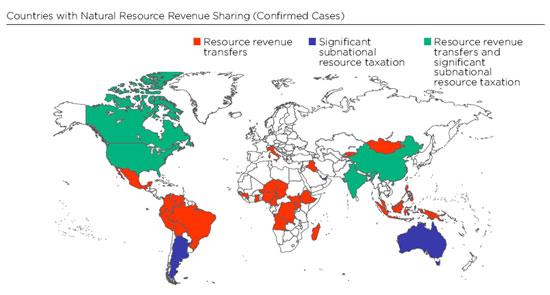
Natural Resource Revenue Sharing
In nearly every country, subnational governments receive public funds, either through direct tax collection or through intergovernmental transfers. However, in more than 30 countries—including Bolivia, Canada, the Democratic Republic of the Congo, Indonesia, Nigeria and Papua New Guinea—distribution of non-renewable natural resource revenues to subnational authorities is governed by a set of rules that are distinct from those governing distribution of non-resource revenues.
Resource revenue sharing has been promoted as a remedy to the “resource curse” in several conflict-affected states such as Iraq, Libya and Myanmar. But while these systems can promote economic development and help mitigate or even prevent violent conflict in resource-rich regions, they can also impede the transformation of natural resource wealth into wellbeing. In some places, they have exacerbated boom-bust cycles and regional inequalities. Worse, depending on how they have been designed and implemented, they have sometimes intensified violent conflict rather than alleviating it.
This NRGI and United Nations Development Programme report, “Natural Resource Revenue Sharing,” provides a comprehensive summary of resource revenue sharing regimes around the world and offers advice to policymakers establishing or reforming their systems. The report draws on more than 30 case studies, eight of which are presented in the report.


